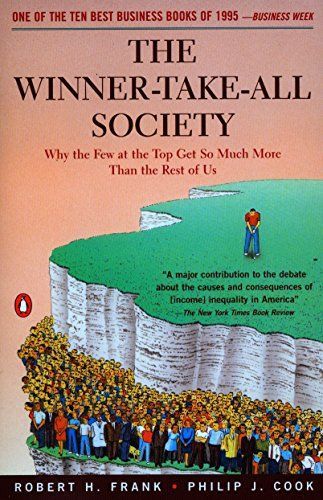
The Winner-Take-All Society Why the Few at the Top Get So Much More Than the Rest of Us
Disney chairman Michael Eisner topped the 1993 Business Week chart of America's highest-paid executives, his $203 million in earnings roughly 10,000 times that of the lowest paid Disney employee. During the last two decades, the top one percent of U.S. earners captured more than 40 percent of the country's total earnings growth, one of the largest shifts any society has endured without a revolution or military defeat. Robert H. Frank and Philip J. Cook argue that behind this shift lies the spread of "winner-take-all markets"—markets in which small differences in performance give rise to enormous differences in reward. Long familiar in sports and entertainment, this payoff pattern has increasingly permeated law, finance, fashion, publishing, and other fields. The result: in addition to the growing gap between rich and poor, we see important professions like teaching and engineering in aching need of more talent. This relentless emphasis on coming out on top—the best-selling book, the blockbuster film, the Super Bowl winner—has molded our discourse in ways that many find deeply troubling.
Reviews
Timeo Williams@timeowilliams